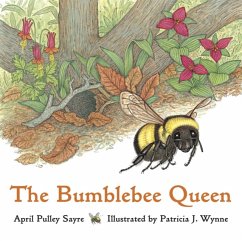Nicht lieferbar

Plant Biology
Pearson New International Edition
Versandkostenfrei!
Nicht lieferbar
For non-majors and mixed-majors introductory botany (plant biology) courses.
Plant Biology focuses students on the function of plants and the role they play in our world. With evolved content and a new organization, the authors emphasize the scientific method to help students develop the critical thinking skills they need to make sound decisions throughout life. Together, the emphasis on how plants work and the development of critical-thinking skills support the authors’ goal of fostering scientific literacy.
Features + Benefits
• New Organization-The text features a newly revised organization.
- Throughout this book, plant structural and functional topics are integrated, rather than being treated separately. Important concepts like water transport and plant mineral nutrition are revisited in multiple contexts to aid student retention of knowledge.
– Chapters on prokaryotes and protists have been moved to a new diversity section that also includes expanded coverage of seedless plants, seed evolution, gymnosperms, and plant life cycles.
– – The Ecosystem material has been reorganized into three coherent chapters.
New Content-
-A new chapter, Plant Behavior, provides expanded coverage of plant responses to physical and biological stimuli.
– The chapter on Evolution includes new material illustrating rapid selection and adaptive response during evolution of bacterial antibiotic resistance. This new material provides very compelling evidence for the fact of evolution and its practical application to human affairs.
– New material on plant embryology, marine ecosystems, wood anatomy, and plant sex chromosomes.
– Many additional examples of human uses of plants are discussed.
– The final chapter on sustainability has been expanded.
• Authoritative and beautiful art program–created by co-author and botanist Lee W. Wilcox, the illustrations were developed hand-in-hand with the text–making the art an integrated part of the text, rather than an adjunct feature.
– Designed to be attractive and easily understood by non-majors.
• Focus on “Scientific Literacy”–The goal of Plant Biology is to motivate students to gain a broad understanding of the fundamental biological processes that affect many life decisions.
– Emphasis on the scientific method develops critical thinking skills.
– Numerous analogies, examples and applications demonstrate the relevance of the material and emphasize the necessity of being “scientifically literate.”
-Teaches students how to evaluate basic biological principles so they can make informed decisions.
– Students become more engaged and receptive to learning the material. For example, The Botany of Beer, Heavy Metal Plants and Restoring a Lost Forest show students the role of plants as it relates to their lives.
• Focus on defining themes–Global ecology, evolution and DNA science are essential topics that provide a contemporary thematic framework throughout the text.
– Engages students and encourages them to focus on the function of plants in the world.
– Increases understanding of biology through compelling issues students will encounter through the media (environmental degradation, genetically modified crops, medicinal herbs).
– Integration within the chapter indicated by margin icons.
– Separate chapters on global ecology, evolution and DNA science pay specific attention to these themes.
I. Introduction
1. Introduction to Plant Biology
2. Plants and People
II. Plant Structure and Function
3. Molecules and Plants
4. Cells
5. Photosynthesis and Respiration
6. DNA, RNA, and Protein Synthesis
7. Cell Division: Mitosis and Cytokinesis
8. Plant Structure, Growth, and Development
9. Stems
10. Roots
11. Leaves
12. Plant Behavior
III. Plant Reproduction, Genetics, and Evolution
13. Reproduction, Meiosis, and Life Cycles
14. Genetics and the Laws of Inheritance
15. Genetic Engineering
16. Biological Evolution
IV. Diversity
17. Naming and Organizing Microbes, Viruses, and Plants
18. Prokaryotes and the Origin of Life
19. Protists and the Origin of Eukaryotic Cells
20. Fungi and Lichens
21. Seedless Plants: Bryophytes, Lycophytes, and Pteridophytes
22. Gymnosperms and the Origin of Seeds
23. Angiosperm Reproduction: Flowers, Fruits, and Seeds
24. Flowering Plant and Animal Coevolution: Pollination and Seed Dispersal
V. Ecology and Plant Adaptations to the Environment
25. Principles of Ecology and the Biosphere
26. Arid Terrestrial Ecosystems
27. Moist Terrestrial Ecosystems
28. Aquatic Ecosystems
29. Human Impacts and Sustainability
Plant Biology focuses students on the function of plants and the role they play in our world. With evolved content and a new organization, the authors emphasize the scientific method to help students develop the critical thinking skills they need to make sound decisions throughout life. Together, the emphasis on how plants work and the development of critical-thinking skills support the authors’ goal of fostering scientific literacy.
Features + Benefits
• New Organization-The text features a newly revised organization.
- Throughout this book, plant structural and functional topics are integrated, rather than being treated separately. Important concepts like water transport and plant mineral nutrition are revisited in multiple contexts to aid student retention of knowledge.
– Chapters on prokaryotes and protists have been moved to a new diversity section that also includes expanded coverage of seedless plants, seed evolution, gymnosperms, and plant life cycles.
– – The Ecosystem material has been reorganized into three coherent chapters.
New Content-
-A new chapter, Plant Behavior, provides expanded coverage of plant responses to physical and biological stimuli.
– The chapter on Evolution includes new material illustrating rapid selection and adaptive response during evolution of bacterial antibiotic resistance. This new material provides very compelling evidence for the fact of evolution and its practical application to human affairs.
– New material on plant embryology, marine ecosystems, wood anatomy, and plant sex chromosomes.
– Many additional examples of human uses of plants are discussed.
– The final chapter on sustainability has been expanded.
• Authoritative and beautiful art program–created by co-author and botanist Lee W. Wilcox, the illustrations were developed hand-in-hand with the text–making the art an integrated part of the text, rather than an adjunct feature.
– Designed to be attractive and easily understood by non-majors.
• Focus on “Scientific Literacy”–The goal of Plant Biology is to motivate students to gain a broad understanding of the fundamental biological processes that affect many life decisions.
– Emphasis on the scientific method develops critical thinking skills.
– Numerous analogies, examples and applications demonstrate the relevance of the material and emphasize the necessity of being “scientifically literate.”
-Teaches students how to evaluate basic biological principles so they can make informed decisions.
– Students become more engaged and receptive to learning the material. For example, The Botany of Beer, Heavy Metal Plants and Restoring a Lost Forest show students the role of plants as it relates to their lives.
• Focus on defining themes–Global ecology, evolution and DNA science are essential topics that provide a contemporary thematic framework throughout the text.
– Engages students and encourages them to focus on the function of plants in the world.
– Increases understanding of biology through compelling issues students will encounter through the media (environmental degradation, genetically modified crops, medicinal herbs).
– Integration within the chapter indicated by margin icons.
– Separate chapters on global ecology, evolution and DNA science pay specific attention to these themes.
I. Introduction
1. Introduction to Plant Biology
2. Plants and People
II. Plant Structure and Function
3. Molecules and Plants
4. Cells
5. Photosynthesis and Respiration
6. DNA, RNA, and Protein Synthesis
7. Cell Division: Mitosis and Cytokinesis
8. Plant Structure, Growth, and Development
9. Stems
10. Roots
11. Leaves
12. Plant Behavior
III. Plant Reproduction, Genetics, and Evolution
13. Reproduction, Meiosis, and Life Cycles
14. Genetics and the Laws of Inheritance
15. Genetic Engineering
16. Biological Evolution
IV. Diversity
17. Naming and Organizing Microbes, Viruses, and Plants
18. Prokaryotes and the Origin of Life
19. Protists and the Origin of Eukaryotic Cells
20. Fungi and Lichens
21. Seedless Plants: Bryophytes, Lycophytes, and Pteridophytes
22. Gymnosperms and the Origin of Seeds
23. Angiosperm Reproduction: Flowers, Fruits, and Seeds
24. Flowering Plant and Animal Coevolution: Pollination and Seed Dispersal
V. Ecology and Plant Adaptations to the Environment
25. Principles of Ecology and the Biosphere
26. Arid Terrestrial Ecosystems
27. Moist Terrestrial Ecosystems
28. Aquatic Ecosystems
29. Human Impacts and Sustainability
For non-majors and mixed-majors introductory botany (plant biology) courses. Plant Biology focuses students on the function of plants and the role they play in our world. With evolved content and a new organization, the authors emphasize the scientific method to help students develop the critical thinking skills they need to make sound decisions throughout life. Together, the emphasis on how plants work and the development of critical-thinking skills support the authors' goal of fostering scientific literacy.












